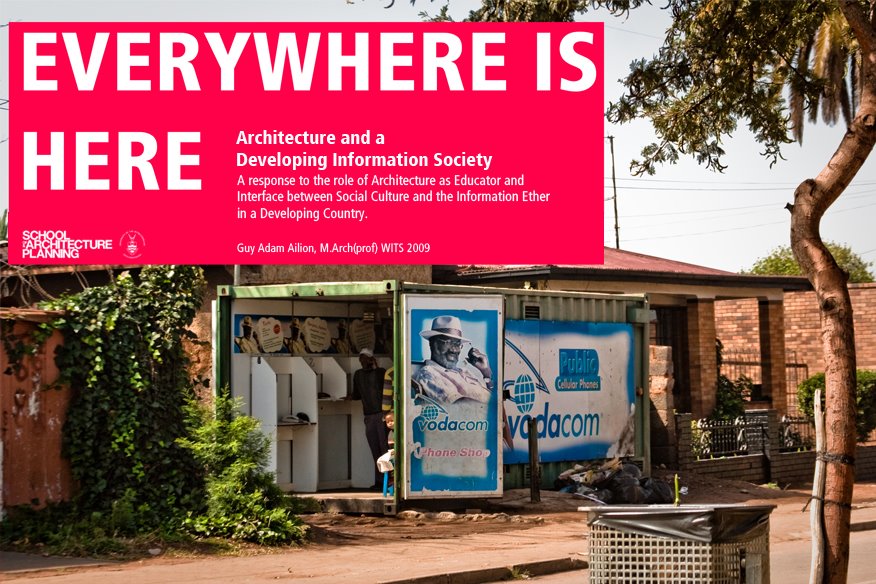INTRODUCTION:
I have asked myself, What Happens when Everywhere is Here?
“In our lifetime we are going from not everyone being able to communicate to almost everyone being able to, from not everyone having access to a library to almost everyone having access to the world’s knowledge” Eric Smidt, Google CEO
SEE INTERVIEW HERE:
Before now obtaining Information was like picking up pebbles on a private beach – if you were a member. You could hold it in your hand, fill your pockets with pebbles, take them home and go back for more. These pebbles were heavy, different shapes and sizes and your coat could only hold so many. Today Information is the ocean – liquid, and fluid. We can float on its surface and swim deep into its depths of discovery. It is formless and weightless and accessible by anyone.
In years from now, Built Environment institutions may ask their students ‘What did Google mean for Architecture?’, As one might look back today at the Industrial era and observe the effects of ubiquitous machining and industry in the creation of the modernist experience and modernist form, when answering this question future architectural students will look back at the 21st Century and examine the effects of the digital age of information systems on the city, its buildings, space-making, and the archetype functions of spatial programs - ‘What became of the public library when access to knowledge was instant and everywhere?’ In gathering these traces, students and historians will formulate a timeline illustrating how architectural form and programming altered, evolved, adapted, and sometimes completely disintegrated in order to accommodate new forms of information access, communication technologies, and digital interfaces in the rip-curl current of the information revolution - that is now.
--
Here is an interesting video that explores the changes in the way we find, store, create, critique, and share information today..
--
Here is a preview of how Standford University Library is digitizing content for the future of Libraries..
Tuesday, April 7, 2009
Subscribe to:
Post Comments (Atom)

No comments:
Post a Comment